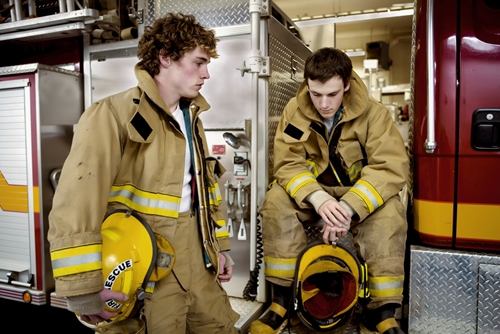The strain associated with serving as a first responder is considerable, and can lead to problems for those who take on these demanding roles. It's comforting to know that programs exist to help emergency personnel cope with difficulties they may face as a result of their roles, as they suffer those stresses while serving their communities and keeping others safe. These selfless duties are absolutely vital, and the people who put their lives on the line deserve only the best treatment in return.
Post-traumatic stress is one of the many dangers facing first responders. When conditions in the field get particularly intense, emergency personnel
"Having resources and programs to deal with this issue is important for communities around the country."
may experience mental effects for a long time afterwards. Having the resources and programs in place to deal with this often-misunderstood issue is therefore important for communities around the country.
Logging PTSD stories
When PTSD takes first responders to dark places, one of the most effective coping mechanisms is sharing information and learning from others. Orlando's WKMG recently spotlighted Central Florida firefighter James Geering, who has created an online repository for PTSD testimonials. He hopes that the exchange of experiences can help emergency responders through their toughest times. He has already felt the positive effect of telling his own story.
"It was therapeutic for me," he told WKMG. "Once you realize by doing this you're helping, it gives you more purpose."
Geering is turning to the internet to get his message out, using both a Facebook page and an audio podcast to connect first responders to one another. He hopes that by highlighting cases where individuals overcame their toughest times and faced down their demons, his projects will send a hopeful message to firefighters, EMTs and police officers who are at their lowest point.
Training Seminars on Offer
Some agencies use PTSD training as a part of official personnel programs. Jeffersonville, Indiana, is one such community, according to local news source WHAS. The fire and police departments brought representatives from the American Foundation for Suicide Prevention to speak with emergency personnel and ensure that the memories of traumatic events they deal with in their duties – from battling deadly fires to responding to heroin overdoses – don't permanently drag first responders down.
The American Foundation for Suicide Prevention's Gage Donohue told the news network that part of his role is getting through to the physically tough and hardened firefighters and encouraging them to be more emotionally vulnerable about their own experiences. Bottling up problems rather than dealing with them head-on can cause long-term problems, uncomfortable though it may be. Jeffersonville Fire Chief Eric Hendrick noted that when firefighters are mentally and physically healthy, the community as a whole benefits.
Fighting Back on PTSD
Awareness, community and dedicated programs can help reduce rates of trauma among first responders. Acknowledging that these roles are some of the most dangerous and stressful in the world is a vital first step to giving police, fire and EMS personnel the attention they deserve. When these professionals are looked after and receive top care, they are better able to keep the public safe, and that's the result departments are most eager to achieve.

